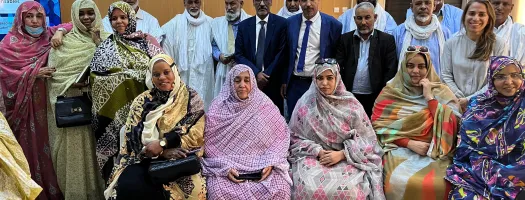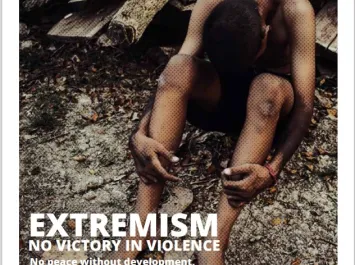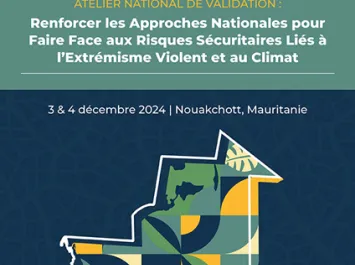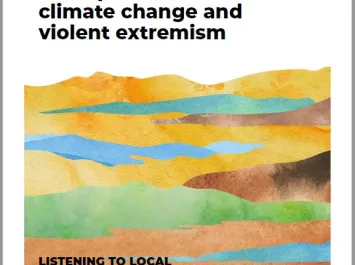A three-day capacity-building workshop was successfully concluded as part of the initiative funded by the Korea International Cooperation Agency (KOICA), aimed at integrating gender perspectives into efforts to prevent violent extremism (PVE). This workshop, which built on insights gained from extensive research and focused on communities needs, was hosted from 17 to 19 February 2025 in Nouakchott, Mauritania.
Following previous training sessions with national authorities, civil society leaders, and media professionals, this final event in the series brought together religious actors, including Imams, representatives of the Ministry of Islamic Affairs, as well as – thanks to collaboration with the United Nations Office on Drugs and Crime (UNODC) – Mourchidates, i.e. female religious guides. Through a three-day interactive programme, participants explored gender-sensitive approaches to preventing violent extremism and strengthening community resilience. The workshop enhanced the capacity of religious actors to integrate a gender perspective into PVE initiatives, ensuring that the distinct vulnerabilities, experiences, and contributions of Mauritanian women, men, girls, and boys are effectively recognized and addressed in these efforts. It also equipped them with practical tools to provide alternative gender-sensitive narratives and strengthen community support systems, fostering more inclusive and resilient responses to radicalization.
Key Highlights:
Advancing gender equality in PVE: Participants emphasized the role of gender equality in sustainable development and prevention efforts, as well as the need to integrate a gender perspective into security initiatives to build resilient communities.
Religious guidance to counter violent extremism: Discussions highlighted the impact of poverty, marginalization, and religious misunderstanding in driving extremism, stressing the importance of collaboration between Imams and Mourchidates to promote alternative narratives.
Community-driven approaches to security: The workshop reinforced that violent extremism is both a security and economic issue, emphasizing the importance of women’s economic empowerment, youth engagement, and stronger coordination between religious actors, civil society, and government to prevent violent extremism.
UNICRI extends its heartfelt thanks to the Korea International Cooperation Agency (KOICA), the Antenne nationale de lutte contre la radicalisation et l’extrémisme violent (CELLRAD), and the Ministry of Islamic Affairs, whose support made this initiative possible. Together, we are committed to advancing gender equality and building resilient, empowered communities.
For more information about UNICRI’s work on gender-based discrimination and the prevention of violent extremism in the Sahel region, please visit our dedicated page.



